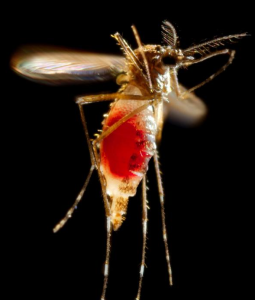By NewsDesk @infectiousdiseasenews
Several cases of chikungunya have been diagnosed in November in Djibouti, prompting calls to observe the usual precautions when traveling or staying in country, according to the France Diplomatie, Ministry of Europe and Foreign Affairs (computer translated).

This comes after a large ongoing chikungunya outbreak was reported in neighboring Ethiopia where 54,480 cases have been reported since the summer.
Mes Vaccins.net reminds travelers (computer translated) that no vaccine is available against chikungunya.
Travelers are advised to protect themselves from mosquito bites. The usual measures of vector control should be respected:
- reduce outdoor time during mosquito peak hours (between dusk and dawn);
- to wear light colored clothing with long sleeves, trousers and socks in areas where mosquitoes are present;
- to protect against mosquito bites by using an insect repellent containing DEET;
- clean gutters and regularly empty bird baths and other objects that collect water;
- to ensure that rain barrels are covered with mosquito nets or that they are tightly sealed around the downspout of rainwater;
- improve landscaping to prevent stagnant water around the house.
People who use sunscreen should apply the repellent 20 minutes after the sunscreen.
Symptoms of chikungunya disease usually begin 3–7 days after a person is bitten by an infected mosquito. Most people infected with chikungunya virus develop some symptoms. The most common symptoms are fever and joint pain. Other symptoms can include headache, muscle pain, joint swelling, or rash.
Got Smallpox? T-shirts & merchandise
The symptoms of chikungunya disease are similar to those of dengue and Zika. Dengue and Zika are two other diseases spread by the same mosquitoes that transmit chikungunya.
Chikungunya disease does not often result in death, but the symptoms can be severe and disabling. And even though most patients feel better within a week, others may have joint pain that lasts for months.
- Dengue in Myanmar: 23K cases in first 11 months of 2019
- Florida reports dozens more hepatitis A cases
- Coleslaw recalled due to Salmonella risk
- Hepatitis A outbreak linked to blackberries: 16 cases in six states
- Chickenpox in Taiwan enters epidemic season
- Samoa measles outbreak tops 4,000 cases
- Philippines dengue cases top 400,000 cases for 2019, Malaysia and Thailand updates


One thought on “Chikungunya reported in Djibouti, Precautions advised”